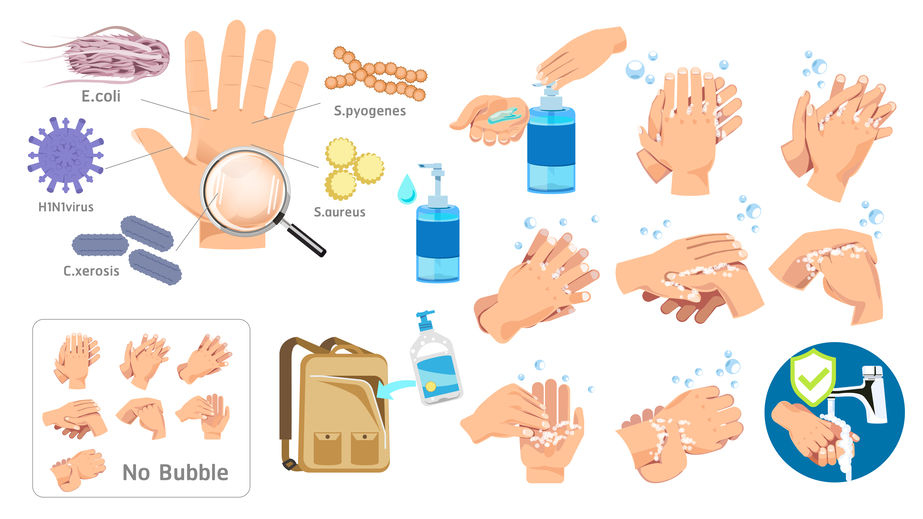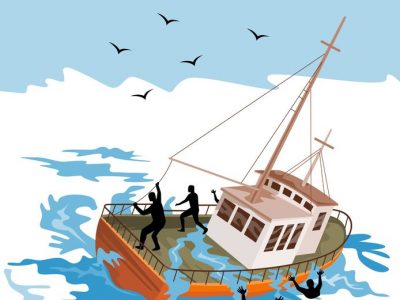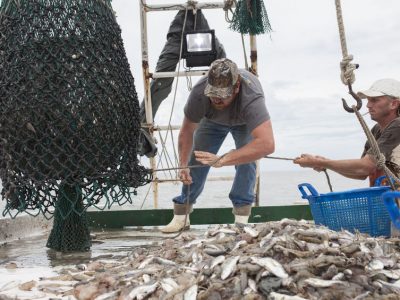

Protecting Commercial Fishermen from Preventable Diseases
Seamen take on a very high risk of injury compared to workers in many other industries. Hazards specific to the job create certain common types of accidents among maritime workers. One of the potential hazards in a fishing vessel is the spread of communicable diseases because of poor hygiene or an unsanitary environment. These medical emergencies can be avoided with “medical survival skills”.
How to reduce the risk of preventable diseases on fishing vessels
There are many common-sense actions and precautions that can be taken to ensure the health of the crewmen onboard a ship starting with an understanding of the most common types of medical emergencies and learning how to stop them in their tracks so that they don’t blow up into emergencies.
Here is a list of things that should be done on board to prevent the spread of disease:
- Potable and freshwater storage tanks and distribution systems that are used for drinking, cooking, washing, bathing and cleaning should be disinfected as needed with a super-chlorination product or process. Water should be clear.
- Providing plenty of fruits and vegetables to keep the crew healthy.
- Food preparation guidelines must be followed:
- Washing hands with soap before cooking.
- Separating raw meat, fish and poultry from vegetables and washing hands after handling these foods to avoid cross contamination.
- Disinfecting work surfaces and using different cutting boards for meat, poultry, fish and vegetables.
- Cooking to proper temperatures with a meat thermometer.
- Storing food in the freezer or refrigerator until use.
- Following thawing guidelines.
- Signs of intestinal diseases such as dysentery, typhoid and intestinal parasites like roundworm should be taken seriously. Any person showing symptoms such as diarrhea, fever or vomiting should be removed from duty until the symptoms have run their course.
- Skin infections such as ringworm, scabies, lice, and athlete’s foot are highly contagious and must be treated immediately to stop their spread.
- Bed bugs should be treated immediately.
- Antibacterial soap should be provided at all hand-washing stations and crew should be reminded to wash hands regularly as good hygiene is the best way to avoid spreading illness.
- Crew should be instructed to use shampoo and soap while showering regularly.
- Toilets and garbage cans should be cleaned regularly.
Who is liable for the spread of preventable disease on a commercial fishing vessel?
The skipper has a responsibility to create a clean and healthy work environment. Part of that responsibility is communicating the consequences of poor hygiene and communicable diseases in a confined living and working environment. Crewmen have a responsibility to wash their hands, keep themselves clean and let the skipper know when they are sick.
Seek the help of a maritime injury attorney
If you or a loved one was injured or sickened due to the reckless/negligent behavior of another seaman or maritime employer, you have enough to deal with. Let an experienced maritime injury attorney fight for justice on your behalf. It is not uncommon to receive a settlement from the insurance company that is five to ten times larger with the help of a maritime accident lawyer. Call the most experienced practicing maritime accident attorneys Bellingham has at Tario & Associates, P.S. today for a FREE consultation! We have been representing grieving family members in Whatcom County, Skagit County, Island County and Snohomish County since 1979. You will pay nothing up front and no attorney fees at all unless we recover damages for you!




